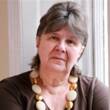The Loney
(Libby/OverDrive eBook, Kindle)
Available Platforms
Description
Excerpt
Similar Titles From NoveList
Similar Authors From NoveList
Published Reviews
Booklist Review
A winter storm on a stretch of desolate English coastline causes a landslide, revealing the body of a baby. The discovery evokes this gothic reminiscence of a family's Easter-week pilgrimage to the area, known as the Loney, decades earlier. The first-person narrator, known only as Tonto (a nickname given by his priest), was a teenager in 1976 and in charge of his older brother, mute and developmentally delayed Andrew, whom he called Hanny. The past is brought to life when a new priest in the community, Father Bernard, is entreated by Andrew's mother to lead a trip like previous ones to the Loney, which is near a shrine that she hopes could be the key to healing her son. Less successful from the start, this last pilgrimage is plagued by bad weather and ominous occurrences, some possibly related to legends of a local witch, in which the two brothers become involved. An atmospheric debut novel with well-drawn characters set on a bedrock of faith.--Leber, Michele Copyright 2016 Booklist
Publisher's Weekly Review
A palpable pall of menace hangs over British author Hurley's thrilling first novel, narrated by a London boy, "Tonto" Smith, whose affectionate nickname was bestowed by a parish priest who likened himself to the Lone Ranger. Tonto and his family undertake an Easter pilgrimage to the Moorings, a house overlooking a treacherous swath of tide-swept Cumbrian coast known as the Loney. Smith's devoutly Catholic mother hopes that taking the waters at the nearby shrine will cure his older brother, Hanny, of his lifelong muteness. But the Cumbrian landscape seems anything but godly: nature frequently manifests in its harshest state and the secretive locals seem beholden to primitive rites and traditions that mock the religious piety of the visitors. Adding to the mystery is Coldbarrow, a spit of land turned twice daily by the tides into an island, where a man, a woman, and a pregnant teenage girl have taken refuge in a gloomy house named Thessaly. Hurley (Cages and Other Stories) tantalizes the reader by keeping explanations for what is happening just out of reach, and depicting a natural world beyond understanding. His sensitive portrayal of Tonto and Hanny's relationship and his insights into religious belief and faith give this eerie tale depth and gravity. Agent: Lucy Luck, Aitken Alexander Associates (U.K.). (May) © Copyright PWxyz, LLC. All rights reserved.
Library Journal Review
When a landslide during a winter storm reveals the body of an infant, the desolate Lancashire coastline known as the Loney is in the news, and the narrator called Smith realizes he must tell the story of his past there. Thirty years earlier Smith's family and other church members undertook an Easter pilgrimage to an old shrine in order to "heal" his mute brother Hanny and reconvene with God. However, the adventure was one of clashing attitudes, strange locals, loud noises in the night, hidden locked rooms, and miracles that may not have been God's will at all. First-time novelist Hurley weaves an intricate story of dark mystery and unwavering brotherly love that lends itself to many rereads. The characterizations are superb; even the Loney becomes a distinct character as it seems the place, not the people, is to blame for the bizarre happenings. Also, while religion plays a major role, the reference is more an observation of traditions. VERDICT This eerily atmospheric and engrossing novel will captivate readers who like their fiction with a touch of the gothic.-Natalie Browning, J. Sargeant Reynolds Community Coll. Lib., Richmond © Copyright 2016. Library Journals LLC, a wholly owned subsidiary of Media Source, Inc. No redistribution permitted.
Kirkus Book Review
Years after a disturbing incident changes his life, a man finally tells the story of what happened to him and his brother in Hurley's tension-filled debut. Growing up with a strict Catholic mother, the two boys learn a version of fire-and-brimstone faith that is tested each year when the family and some other members of the church, including the local priest, travel to the remote Lancashire coast around Easter. The older boy, Hanny, has mental disabilities and refuses to talk, and his younger brother, the narrator, is one of the few who can communicate with him and who looks out for him, accepting him for who he is. Their mother hopes for a miracle every year that will "cure" Hanny, and she forces the whole group to fast and pray in hopes that he will begin to speak. Their last journey to the coast, when the boys are in their mid- and late teens, coincides with the death of the old priest and the hiring of a young, new one. At the Easter in question, the group is met by unfriendly locals, and soon they are hearing and seeing strange things in the woods, compounded by the arrival of a glamorous, mysterious family in the "big house" that lies beyond the Loney, a stretch of beach that sits underwater during high tides. The unforgiving landscape is a major point of the novel; its danger and isolation not only endanger the boys, but also emphasize the sense of dread that permeates every page. The weakness of the novel is the narrative voice: the narrator, speaking in flashback, describes the loneliness and horror very clearly, but the reader never gets a good sense of who he is. Mysterious and bleak, atmospheric and creepybut, ironically, the novel lacks soul. Copyright Kirkus Reviews, used with permission.
Booklist Reviews
A winter storm on a stretch of desolate English coastline causes a landslide, revealing the body of a baby. The discovery evokes this gothic reminiscence of a family's Easter-week pilgrimage to the area, known as the Loney, decades earlier. The first-person narrator, known only as Tonto (a nickname given by his priest), was a teenager in 1976 and in charge of his older brother, mute and developmentally delayed Andrew, whom he called Hanny. The past is brought to life when a new priest in the community, Father Bernard, is entreated by Andrew's mother to lead a trip like previous ones to the Loney, which is near a shrine that she hopes could be the key to healing her son. Less successful from the start, this last pilgrimage is plagued by bad weather and ominous occurrences, some possibly related to legends of a local witch, in which the two brothers become involved. An atmospheric debut novel with well-drawn characters set on a bedrock of faith. Copyright 2014 Booklist Reviews.
Library Journal Reviews
When a landslide during a winter storm reveals the body of an infant, the desolate Lancashire coastline known as the Loney is in the news, and the narrator called Smith realizes he must tell the story of his past there. Forty years earlier Smith's family and other church members undertook an Easter pilgrimage to an old shrine in order to "heal" his mute brother Hanny and reconvene with God. However, the adventure was one of clashing attitudes, strange locals, loud noises in the night, hidden locked rooms, and miracles that may not have been God's will at all. First-time novelist Hurley weaves an intricate story of dark mystery and unwavering brotherly love that lends itself to many rereads. The characterizations are superb; even the Loney becomes a distinct character as it seems the place, not the people, is to blame for the bizarre happenings. Also, while religion plays a major role, the reference is more an observation of traditions. VERDICT This eerily atmospheric and engrossing novel will captivate readers who like their fiction with a touch of the gothic.—Natalie Browning, J. Sargeant Reynolds Community Coll. Lib., Richmond
[Page 70]. (c) Copyright 2016 Library Journals LLC, a wholly owned subsidiary of Media Source, Inc. No redistribution permitted.Publishers Weekly Reviews
A palpable pall of menace hangs over British author Hurley's thrilling first novel, narrated by a London boy, "Tonto" Smith, whose affectionate nickname was bestowed by a parish priest who likened himself to the Lone Ranger. Tonto and his family undertake an Easter pilgrimage to the Moorings, a house overlooking a treacherous swath of tide-swept Cumbrian coast known as the Loney. Smith's devoutly Catholic mother hopes that taking the waters at the nearby shrine will cure his older brother, Hanny, of his lifelong muteness. But the Cumbrian landscape seems anything but godly: nature frequently manifests in its harshest state and the secretive locals seem beholden to primitive rites and traditions that mock the religious piety of the visitors. Adding to the mystery is Coldbarrow, a spit of land turned twice daily by the tides into an island, where a man, a woman, and a pregnant teenage girl have taken refuge in a gloomy house named Thessaly. Hurley (Cages and Other Stories) tantalizes the reader by keeping explanations for what is happening just out of reach, and depicting a natural world beyond understanding. His sensitive portrayal of Tonto and Hanny's relationship and his insights into religious belief and faith give this eerie tale depth and gravity. Agent: Lucy Luck, Aitken Alexander Associates (U.K.). (May)
[Page ]. Copyright 2016 PWxyz LLCReviews from GoodReads
Citations
Hurley, A. M. (2016). The Loney . HarperCollins.
Chicago / Turabian - Author Date Citation, 17th Edition (style guide)Hurley, Andrew Michael. 2016. The Loney. HarperCollins.
Chicago / Turabian - Humanities (Notes and Bibliography) Citation, 17th Edition (style guide)Hurley, Andrew Michael. The Loney HarperCollins, 2016.
Harvard Citation (style guide)Hurley, A. M. (2016). The loney. HarperCollins.
MLA Citation, 9th Edition (style guide)Hurley, Andrew Michael. The Loney HarperCollins, 2016.
Copy Details
| Collection | Owned | Available | Number of Holds |
|---|---|---|---|
| Libby | 3 | 3 | 0 |

































